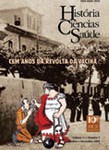February 2019
Source: France24
Fewer than 12 percent of women have access to sanitary protection in India, where the topic is so forbidden that one of the documentary’s protagonists calls it the “worst taboo in our country”. Girls don’t discuss it with their mothers, husbands and wives don’t broach it, and even girlfriends don’t speak of it among themselves.

The short film “Period. End of Sentence”, which won the Oscar for Best Short Documentary illustrates the consequences of a taboo that goes well beyond the issue of women’s health in a country where girls are often reduced to using leaves or wood shavings as makeshift protection. The matter of access to education for teenage girls is also at stake. As one woman explains, she dropped out of school within months of her first period, having struggled with the lack of adequate protection or even a place to change on the school premises (not all of which have toilets). Her story is far from exceptional: More than a quarter of young Indian women are obliged to abandon their studies for the same reason. Read full story
https://youtu.be/KocJP8dG1OA
Read about women’s health in HCS-Manguinhos:
Zika and Aedes aegypti: new and old challenges – The current issue of HCSM (vol.24 no.4 Oct./Dec. 2017) features a debate about the zika epidemic, which came to the fore when the disease raised a series of concerns related to birth defects.
Parirás sin dolor: la atención del parto en la Argentina, 1960-1980 – El artículo discute el lugar que ocupan las demandas por un parto respetado en las políticas de sexualidad en el movimiento feminista.
Las mujeres en HCS-Manguinhos – Una selección de artículos, en español y en inglés, de investigadoras sobre temas relacionados con la mujer.
Cancer, women and public health – Researcher Ilana Löwy follows the early history of the pap test, its consequences and controversies.
Zika virus and rubella: similarities and differences – Researcher Ilana Löwy, from the Institut National de la Sante et de la Recherche Médicale Paris, traces a parallel between the current zika epidemics in Brazil and past rubella outbreaks.
Women’s reproductive health in early twentieth-century Rio de Janeiro – Cassia Roth, Postdoctoral Fellow at the University of Edinburgh, shows that elevated stillbirth and maternal mortality rates marked women’s reproductive years, despite official efforts to medicalize childbirth and increase access to clinical healthcare.
The double life of misoprostol in Brazil – This drug is illegally used by women as an abortifacient and legally used in obstetric hospital wards.
The reign of hormones – Hormones and organs, like uterus and ovaries, are increasingly been used to define roles and behavior. This article discusses the redefinition of gender and sex differences using biological aspects.
Labor, childbirth and infant mortality -This edition features two dossiers: the medicalization of childbirth, and child health and mortality.
Activism in the history of medicine – An interview with Dr Susan M. Reverby, Professor Emerita in Women’s and Gender Studies at Wellesley College.









